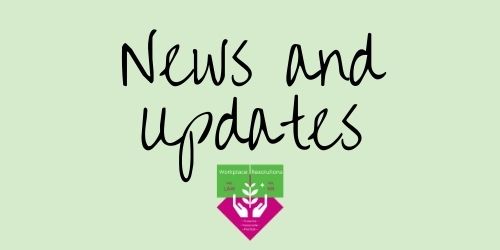
With the outbreak of Coronavirus reaching Australia some workplaces and employees are being impacted and need to understand their workplace obligations and entitlements.
There have been 33 confirmed cases of Coronavirus in Australia, including nine in Victoria. In addition, there have been two confirmed cases of human-to-human transfer of the virus in New South Wales. While it has not yet been declared a pandemic, the Victorian Government has determined it is probable that the virus will spread and impact more people across the state.
If a full or part-time employee is sick with Coronavirus they are entitled to the same conditions under current sick leave entitlements. These include paid sick leave and paid carer’s leave for those who need to take care of a family member or member of their household who may be sick with Coronavirus. The same entitlements apply to unpaid and carer’s leave when an employee has no paid sick or carer’s leave entitlements left. Employees are still required to provide medical certificates if their employer requests evidence of the illness. Casual employees are entitled to 2 days of unpaid carer’s leave per occasion.
If an employee is overseas, or in quarantine, there are no current rules that govern these situations under The Fair Work Act. Employees should advise their employer as soon as possible if they are unable to attend work or have been quarantined because of Coronavirus. Employers and employees will need to reach their own arrangement and agreement and may consider:
- sick leave
- annual leave
- other leave that they may have available, for example long service leave or leave available under their award, enterprise agreement or contract of employment
- unpaid leave by agreement
All employers must ensure the health and safety of their employees and others in their workplace as far as reasonably practical. Where an employee may be at risk of Coronavirus through either recent travel or contact with someone who has the virus, an employer should request medical clearance and the employee work from home (if possible), or not work during the risk period.
If an employer directs full-time or part-time employees not to work, an employee would ordinarily be entitled to be paid while under the direction. Employers may also need to consider obligations under enterprise agreements, awards, contracts of employment, and workplace policies.
Under The Fair Work Act employees can only be stood down without pay if they cannot do what is deemed useful work because of equipment break down, industrial action or a stoppage of work in which an employer cannot be held responsible. These scenarios commonly include severe and inclement weather or natural disasters. Employers need to be aware that enterprise agreements and employment contracts can contain differences on when they can stand down an employee without pay. Employers must be aware of their workplace health and safety, legal and anti-discrimination obligations, and act accordingly.
If an employee is concerned and wants to take precautionary measures against exposure, they can discuss options with their employer, such as taking paid or unpaid leave. Employees may also put in a request to work from home (if possible). Employees should discuss the level of risk of exposure with their doctor, Workplace H&S representative or by contacting their State or Territory Workplace Health and Safety Body. Workers have the same responsibilities as employers under Workplace Health and Safety laws, for example if they feel that they at risk because of recent travel or contact with someone who has the virus, they should seek medical clearance and work from home (if possible), during the risk period.
To find out the latest Health and Safety information on Coronavirus you can contact your State or Territory Workplace Health and Safety Body or:
In addition, the Victorian Government has released the following information to assist and inform people while out in public spaces and in the workplace.
- Wash your hands regularly and cover your mouth and nose with your elbow when coughing or sneezing.
- If you’ve been in mainland China or Iran in the past 14 days or you’ve been in close contact with someone who has Coronavirus, you’re advised to stay at home, and avoid public places.
- If you are returning from Italy or South Korea, and you work as a healthcare worker or as a residential aged care worker, you should not attend your regular work for 14 days.
- If you fall into the risk groups and suspect you may have Coronavirus call the dedicated hotline, serviced by Nurse-On-Call, on1800 675 398.
For more information about topics in this article see:
- Casual employees
- Directing an employee to take annual leave
- Protection from discrimination at work
- Paid sick and carer’s leave
- Unpaid carer’s leave
- Annual leave
- Long service leave
The Victorian Government will be providing further communication to the public about preventing infection. During the recent announcement by the government, Minister for Health Jenny Mikakos said “All of us can play our part when it comes to stopping the spread of this virus – please heed the health warnings and avoid public places if you are in the at-risk groups.”
Liability limited by a scheme approved under Professional Standards Legislation.
This article has been prepared by Vanessa Baglieri, Marketing Manager. The information provided should not be relied upon as legal advice. You should speak with Rosa Raco directly about your specific circumstances via email rraco@wrlaw.com.au or phone 03 54996131.

